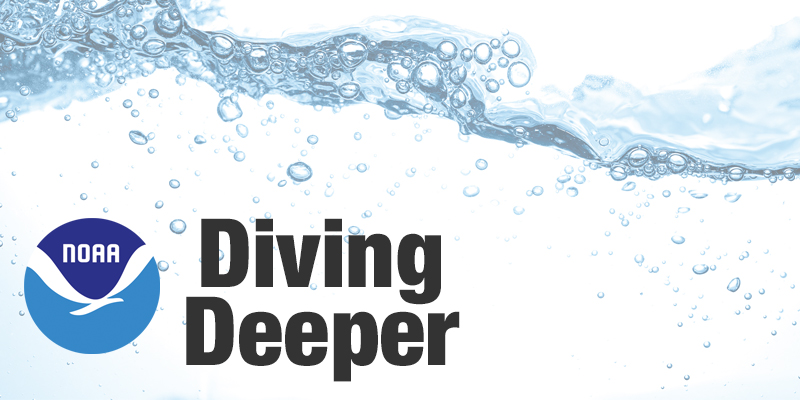The Ocean Economy
Ocean Shorts: Episode 18

An Ocean of Commerce
Did you know that we all benefit from our ocean economy (even if we don't live along the coast)? From exports to imports, production jobs, and tourism, the ocean dollar stretches from the coast all the way to the heartland. Image credit: Robert Schwemmer, NOAA National Marine Sanctuaries
Transcript
HOST: Welcome to Ocean Shorts where we revisit popular Making Waves and Diving Deeper episodes. I’m your host Kate Nielsen. You may not realize it, but wherever you live in the U.S., you benefit from our ocean economy. From exports to imports, production jobs, and tourism, the ocean dollar stretches from the coast all the way to the heartland. In June 2015, I was joined by Jeff Adkins, an economist with NOAA, to talk about our ocean economy.
Let's listen in.
JEFF ADKINS: Well, when I talk about the ocean economy, I’m speaking specifically about a dataset that’s produced by NOAA in cooperation with the Labor Department and with the Bureau of Economic Analysis. It’s called Economics National Ocean Watch and it has time series data for six economic sectors that depend on the resources of the oceans and Great Lakes. And when I say depend on, it’s a couple of meanings—one is more directly dependent through use of the resource, things like offshore oil and gas and commercial fishing or it depends on it because it needs to happen in close proximity to the ocean—things like tourism and marine transportation.
HOST: Where in the U.S. is the largest ocean economy? Which state or which region?
JEFF ADKINS: Well, the largest economy as a whole is California, it’s enormous. It’s larger than several nations, they’re actually larger than most nations, I think there’s nine or 10 nations with an economy bigger than California, so not surprisingly, they’re one of the biggest. They’re one or two depending on whether you’re looking at employment or wages or GDP, but it’s huge. In terms of GDP it would be Texas with the GDP associated with offshore oil and gas, but in every other measure, California is the largest.
HOST: How are the inland areas of the U.S. connected to our ocean economy?
JEFF ADKINS: Well, to begin with the entire economy is really interconnected, I’ve used the analogy that it’s like a big spider’s web and if you touch any part of it the whole thing moves. Looking specifically at the ocean economy you see things like agriculture in the heartland and manufacturing all across the country and retail trade that are very dependent on our coastal ports. Restaurants across the country serve seafood that have been caught in the ocean environment. Vacationers from all across the country show up at the coastal beaches and surfing and on the business side of things, businesses across the country are supplying food and other supplies for the hotels and restaurants that support that coastal tourism.
HOST: Jeff, just to wrap up our chat today, I wanted to see if you had any final, closing words to leave our listeners with?
JEFF ADKINS: The message that I always come back to is that, you look at these data on the ocean economy and it paints the picture for what a complex planning environment that we work in that we have this common pool of resources, the ocean. And some industries that use it depend on healthy ecosystems, some of the industries that use the same resource have the potential to the health of those ecosystems and some years, everybody does well. It’s an example of how, with careful management, you can create the win-win’s where we can have the extractive industries that are doing well at the same time as those who depend on ecosystem health.
HOST: That's all for today's Ocean Shorts. Thanks for joining us! For more information on our ocean economy, see our show notes for links. Be sure to tune in for the next episode.

Connect with ocean experts in our podcast series that explores questions about the ocean environment. Get ready to Dive Deeper!
Subscribe to Feed | Subscribe in iTunes